I am getting a PhD in what some people consider the most useless and unemployable of all disciplines: cultural anthropology. According to Florida Governor Rick Scott, “We don’t need a lot more anthropologists.” Instead, he says, we should “spend our dollars giving people science, technology, engineering, and math degrees. That’s what our kids need to focus all their time and attention on, those types of degrees, so when they get out of school, they can get a job.”
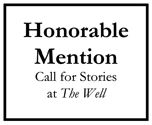
Yes, Rick Scott, when it comes to “practical” degrees, I’ve chosen a loser.
I could craft a rebuttal listing all the very “practical” jobs that anthropologists do in fact accomplish in our nation’s economy, like improving health care systems or working as high-paid lawyers and business leaders. That’s the argument articles by the Huffington Post and the American Anthropological Association already made, and it’s an excellent argument.
But I’d like to make another point about the real reason I’ve decided to study anthropology. It’s not because I want a “practical” degree, if by “practical” we mean earning myself a lot of money and prestige or being assured of a job offer. In fact, by those standards, I’m doing something that is absolutely impractical.
And I’m doing it on purpose. I chose this field because I have come to believe that most of what’s valuable in life simply is not practical.
I can think of at least five impractical pursuits that have guided my education and career. Compared to designing bridges or writing computer software, these might seem non-utilitarian, but I still consider them valuable beyond measure.
- Loving runts. Of all life’s impracticalities, love must be the least practical, especially when it’s spent on an underdog.
A few months ago I found myself holding a dead baby chicken. My children and I had carefully tended a dozen eggs in an incubator, turning them every day for twenty-one days. Not all hatched, and of those that did make it, this little fellow got his legs bent up somehow in the first day of life and they never straightened out right. We taped his legs up with band-aids to hold them straight like my Country Living Encyclopedia told us, and then we watched him run zipping around the cardboard chick house in the basement like Forrest Gump. The kids called him Hobbles.
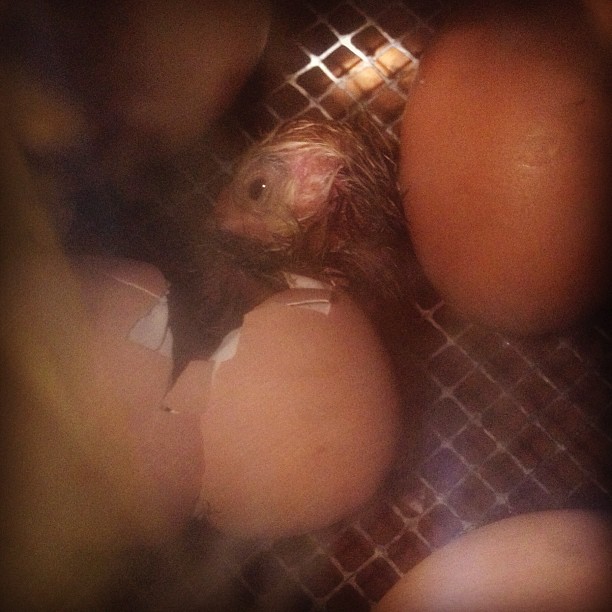
He was the only chicken they named. Of all the fuzzy chicks, they loved him the most, the dearly beloved little runt with too much energy for his own good. Oh, the foolishness of loving the loser.
When Hobbles was only a few days old, he stumbled face down into the waterer. With his bum legs kicking in the air, he never got himself out. I fished his little wet body out and the kids helped me bury him in the yard with a little sign commemorating his short days.
Loving runts is not practical. You work so hard, fighting an uphill battle, and then often you watch the situation get worse. That’s the life of anyone who has worked in economic development, poverty alleviation, and care for the disadvantaged and marginalized. There are just so many odds stacked against you. When my husband and I finished our undergrad degrees, we went off to learn from a poor village in Nicaragua. My husband got raging stomach sicknesses, malaria, and a broken ankle in our first year alone. Mostly we didn’t “fix” life there. Mostly it was hard. Mostly we just learned how to love.
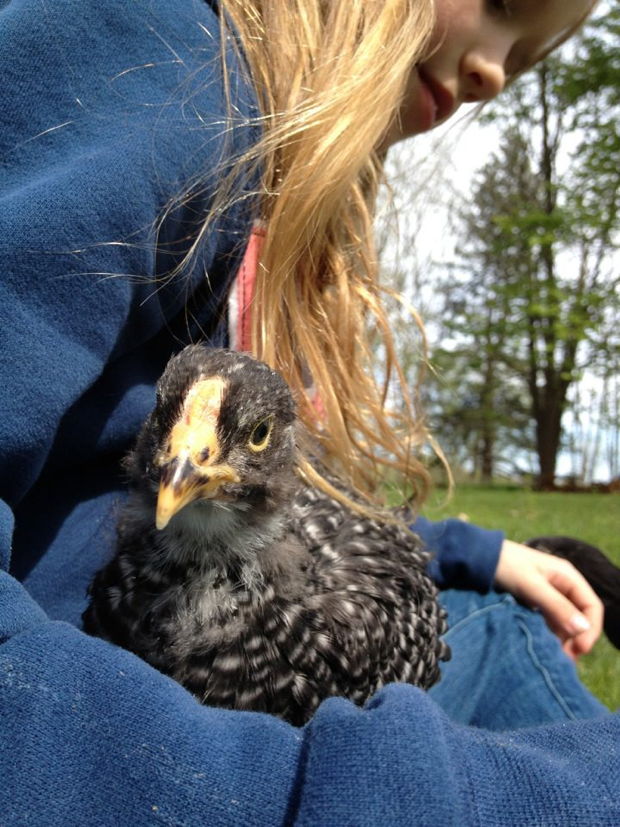
Remember Fern’s dad in the opening scene of Charlotte’s Web, the practical father heading out with an ax to kill the little runt pig Wilbur? Fern, the impractical one, cries over the little piglet and raises him, even though everyone knows his most logical future is getting turned into sausage. And yet that pig survives, through a series of small miracles of love. The story of Charlotte’s Web is full of impracticality, irrationality, and non-utilitarianism. We love this story. We believe it. Deep down, it’s the way we want life to work.
- Graceful Failure. Between my undergrad and PhD, I got a Masters of Business Administration. Here you’re thinking, Excellent, finally this girl’s got a practical plan. But here’s what I did with the MBA: I went to South Africa and ran a microfinance project, and I watched that microfinance project shut its doors after two failing years. To try something and fail is definitely not practical.
Watching that well-intentioned project fail planted questions in my mind that I’m trying to answer in my PhD research, so that other projects might not have to fail in the same way. Not only did that piece of usefulness come out of the failure, the process taught me how important grace is in recovering from the stuff we screw up on.
For my dissertation, I’m researching how people in South Africa deal with unemployment. I talk to a lot of unemployed people, many of whom society would call failures. I spoke with one young man who volunteers with an AIDS hospice center. He talked about what he had learned from being unemployed, and why he volunteered even if it didn’t pay.
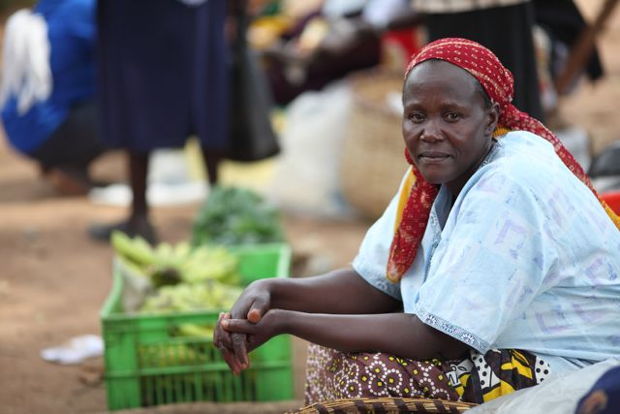
“Some people just want a fancy life,” he said, but being unemployed has taught him that life is about serving others. “You must do something for others and know that God is the one who gives everything.”
I see graceful failure all over when I look at how people cope with unemployment. They share wealth across dozens of family members. They rely on faith when every rational step in the job search has been tried. They accomplish what the economy doesn’t pay for, like growing gardens and holding babies and tending to sick people and writing poems and praying prayers.
If Governor Scott’s prediction is right and I end up unemployed, at least I’ve learned how to gracefully embrace that so-called “failure.”
- Wisdom. South African journalist and anthropologist Jonny Steinberg describes a conversation he had with a South African police officer from one of the toughest neighborhoods in their country. The officer, lower middle-class and struggling to make ends meet for his family, recognizes the luxurious extravagance of Steinberg’s many years of education. He tells Steinberg, “If I was [your mother], I would wrap you in cotton wool. I would give you antibiotics every day just in case you get sick. I would never allow you to go anywhere it is dangerous. She should take out insurance on you. You are more valuable than a room full of diamonds.”(Thin Blue, p. 101).
Like this police officer, some days I’m blown away by the ridiculous investment that has been poured into my life. Who am I to get a PhD, spending forty hours every week just reading and thinking and talking to other people who spend their days reading and thinking? And yet, with that police officer, I see there’s something I’m getting that’s better than a room full of diamonds.
There’s a lot of precious wisdom in the dried up pages of books. According to Proverbs, wisdom is better than a good salary (8:19). Finding wisdom means finding life (8:35). Wisdom isn’t just a step on the way to getting a degree and getting a job; it’s a worthy pursuit in itself, and it’s a privilege to have these years to soak deeply in it.
- Family. It would seem a lot easier to hold off on marriage and kids until after the trudging six-to-eight years it takes to finish a PhD. Life just doesn’t always work that way. I started my PhD at the age of 34 with a husband and two kids already well-embedded in my life. That sounds impractical, but I wouldn’t have it any other way. Having a family keeps me on task, it keeps my perspective grounded so I don’t get carried away working eighty hours a week, and it gives me reminders that thankless jobs like teaching a kid to load a dishwasher and say "please" and "thank you" might matter in the end more than a fancy three letters behind my name.
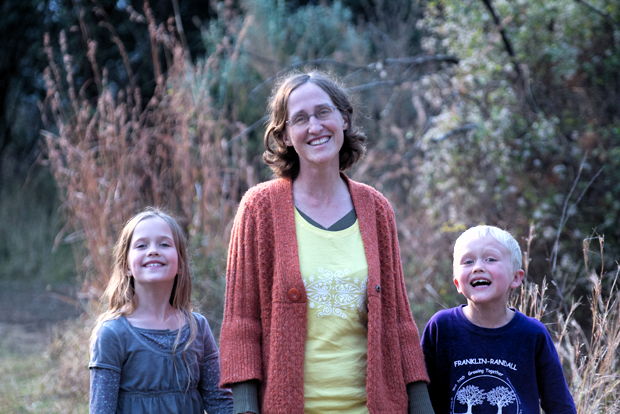
- Stories. The anthropologist Clifford Geertz supposedly said that the purpose of anthropology is to increase the number of stories in the world. It’s no accident that I chose a career that involves sitting around hearing people’s stories. Living among a lot of people that the world casts aside, I have heard some incredible stories. I have heard stories of people forgiving their spouses for cheating and infecting them with HIV, of people turning deserts into gardens, of people starting exotic mushroom exporting businesses from villages without electricity. Sometimes when people tell those stories, they say, “This is a story that the world needs to hear.” I agree with them.
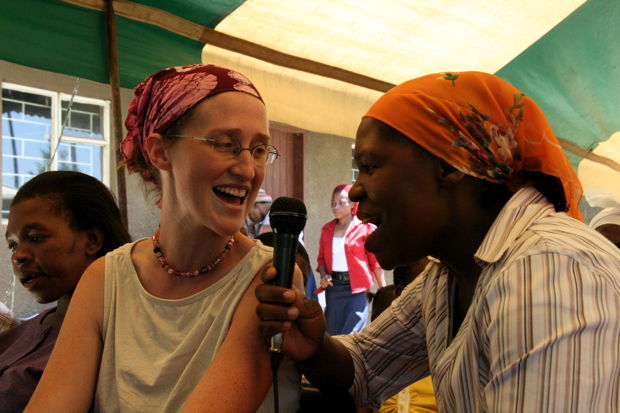
Having an education has helped me sometimes get these stories into magazines and books. Sometimes I have handed people copies of their stories in print, and they have held their own words in their hands and hugged me and cried.
I’m convinced that God must also love the stories. The Bible is a heap of stories. Very little of it lays out theological concepts or lists of advice. Instead, the vast majority tells stories. When God wanted to transform, heal, save, and show love for the world, he didn’t give us a to-do list or a technical training course. Instead he came as a story — a story with the greatest plot twists and happy ending of all stories, of the oh-so-impractical God crunched into a human being.
It’s a story of a pretty impractical guy. He spent a lot of life soaking in wisdom, hearing and telling stories, and even failing (or doing what looked like failing for three days anyway). Above all, he was a master of impractical, out-of-the-way, for-the-least-of-these, non-utilitarian love.
If I wanted practical, I wouldn’t spend over a decade of my life in higher education culminating in a PhD in anthropology. I wouldn’t bother trying to figure out how to pay people just wages, or how to help humans get along better with each other across the world. I also wouldn’t nurture chickens' lives for the sake of a pocketful of eggs every day, and I wouldn’t take time out of my work day to help my kids sew Muppets or go fishing or learn to love beauty. If I wanted practical, I wouldn’t bother bringing kids into this world at all, and I certainly wouldn’t love.
But, here I am, “wasting” year upon year in these impractical pursuits. I might be non-utiltarian, but Governor Scott, I dare you to find a better way to spend a life.
Photos by Adam Jeske.